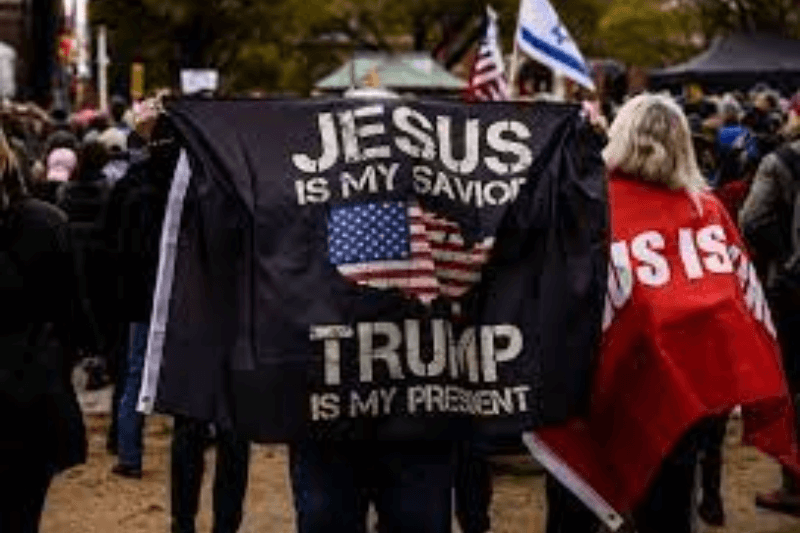
Report: Christian Nationalism’s Impact on American Politics
In the intricate landscape of American politics, the intersection of religion and governance has always been a potent force. Now, with the resurgence of Christian nationalist ideas within influential circles close to former President Donald Trump, the contours of the political landscape may be poised for a profound shift.
Spearheading the Effort
At the forefront of this endeavor is Russell Vought, a figure closely associated with Trump’s administration and now serving as the president of The Center for Renewing America (CRA). Vought, who previously held the position of director of the Office of Management and Budget under Trump’s first term, remains a pivotal figure in conservative circles preparing for the potential return of Trump to power.
Christian Nationalism: A Key Agenda
Christian nationalism, a belief system that asserts the United States was founded as a Christian nation and advocates for the prioritization of Christian values in public life and governance, lies at the heart of this initiative. Amidst a backdrop of shifting demographics and cultural transformations, Vought and his allies see the promotion of Christian ideals as an urgent imperative in safeguarding what they perceive as the nation’s moral fabric.
Keep Reading
Policy Priorities and Strategies
While specific policy proposals under the banner of Christian nationalism remain nebulous, documents obtained by news sources indicate a range of priorities. These include potential actions such as invoking the Insurrection Act to quash protests and implementing stringent immigration policies informed by Christian principles.
Influencing a Future Administration
Vought’s proximity to Trump and his regular interactions with the former president position him as a significant player in shaping the agenda of a potential second Trump administration. With a shared commitment to advancing Christian nationalist ideals, Vought and his allies aim to elevate the prominence of religious considerations in policymaking and governance.
Controversies and Criticisms
The resurgence of Christian nationalism within political circles has sparked intense debate and criticism. Critics argue that privileging specific religious perspectives in governance undermines the principle of secularism enshrined in the U.S. Constitution and risks marginalizing religious and cultural minorities.
The Road Ahead
As the political landscape continues to evolve, the influence of Christian nationalism on policy debates and electoral dynamics is likely to remain a subject of intense scrutiny and debate. Whether these ideas gain further traction and shape the contours of future administrations will depend on a complex interplay of political, cultural, and social factors.
The convergence of religion and politics has long been a defining feature of American society, and the resurgence of Christian nationalism underscores the enduring significance of this relationship. As advocates and critics engage in a vigorous debate over the role of religion in governance, the trajectory of American politics hangs in the balance.




